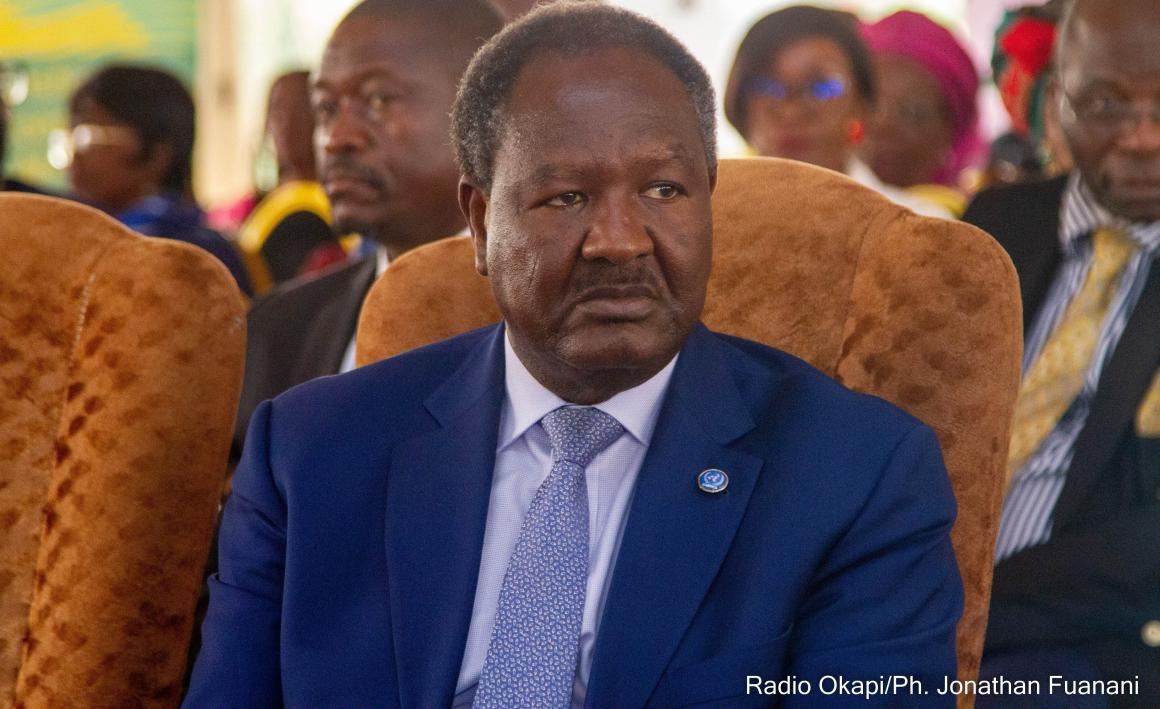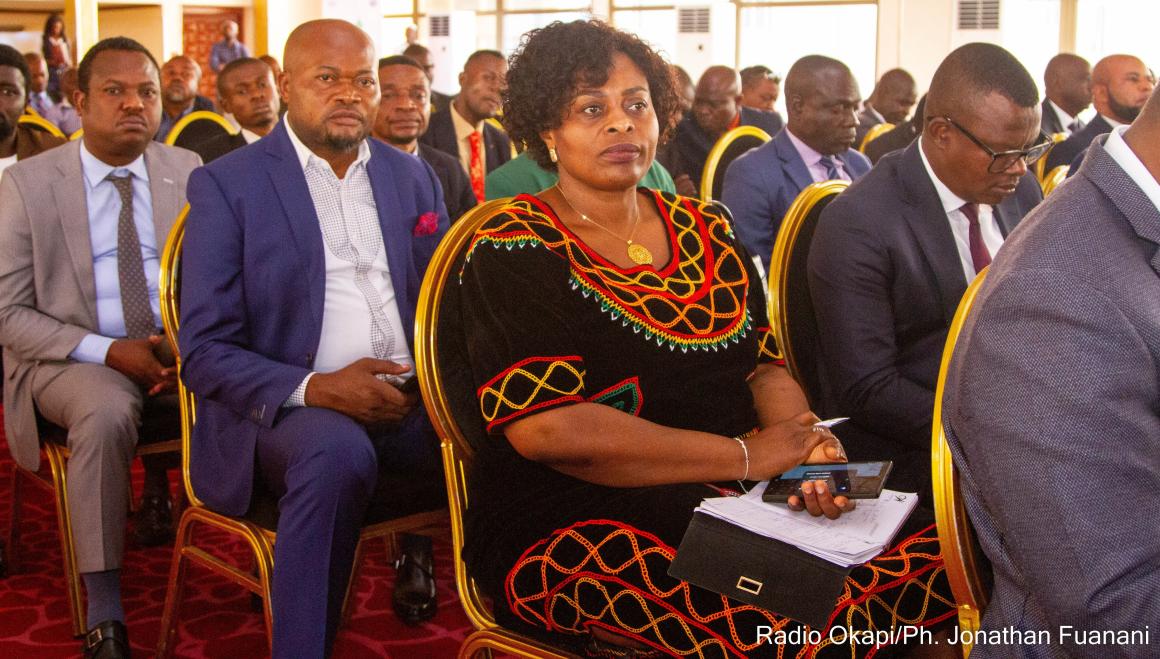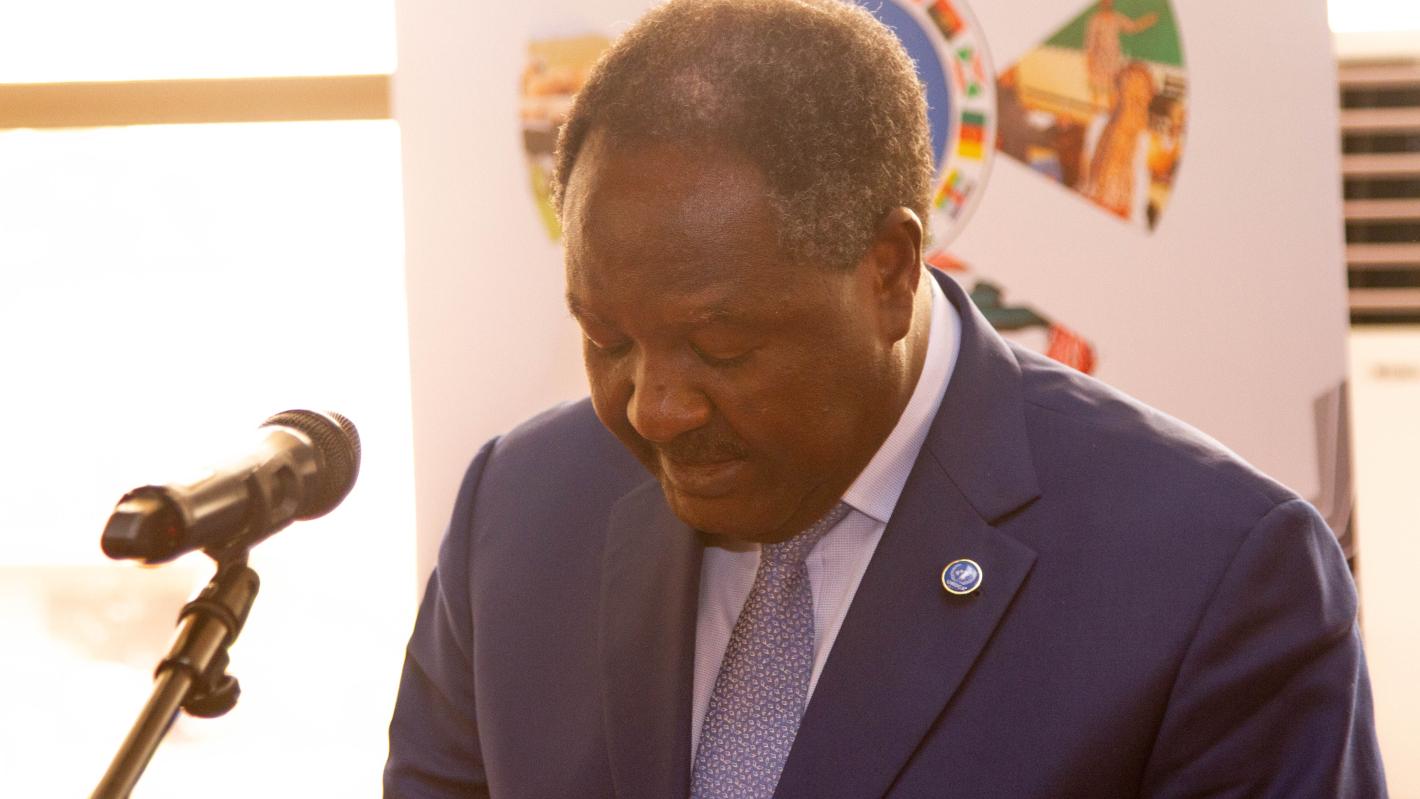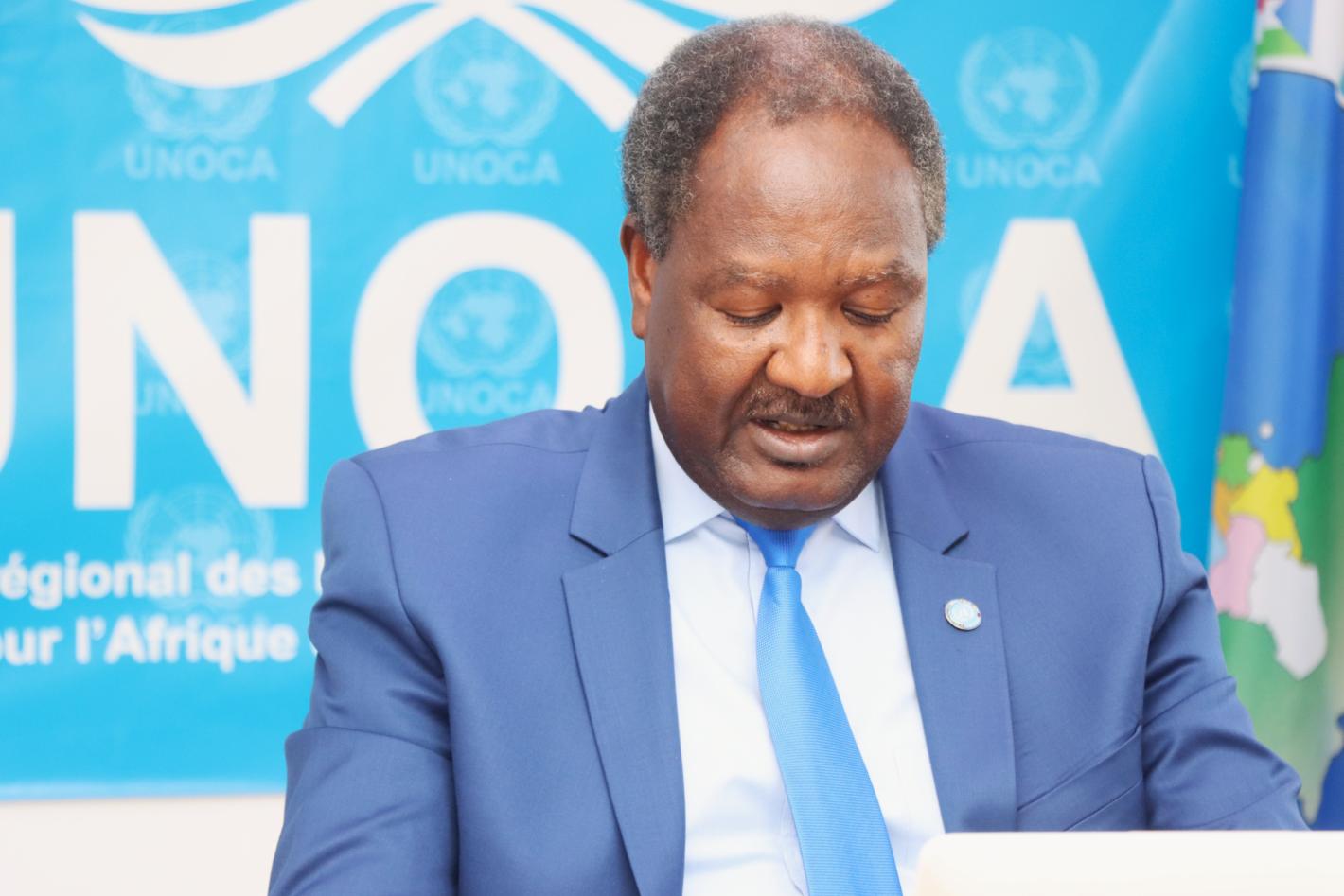The Special Representative and Head of UNOCA spoke on Tuesday, 18 October 2022 in Kinshasa, capital of the Democratic Republic of Congo (DRC), during the Regional Integration Day of the Economic Community of Central African States (ECCAS) marking the 39th anniversary of this institution.
In his speech, Abdou Abarry underlined that the event was an opportunity to highlight "efforts made so far for the prevention and resolution of conflicts, the construction of peace and progress towards genuine regional integration, in accordance with the African Union's Agenda 2063 and its goal of increasing intra-African trade, which called for increasing growth across Africa from 10 per cent in 2012 to 50 per cent by 2045.” However, he pointed out that despite these efforts, the regional context "is still marked by political and security challenges accentuated by various parameters, in particular the weak capacity of States to fight against insecurity, poverty and poor management of natural resources, as well as the unemployment of young people who constitute the vast majority of the working population.” Mr. Abarry warned against the “illicit activities” which can allure this segment of population, in particular because of lack of prospects in an unfavorable economic environment.
“Significant assets”, continued support from UNOCA
In addition, the Head of UNOCA noted that "the conflicts that persist in the region have created new humanitarian challenges, such as the massive displacement of populations and an influx of refugees." He hailed Central Africa’s potential and the “abundant natural resources that could boost its socio-economic development.” Moreover, its “significant assets” can “help diversify the economy, guarantee food security and energy security, provide jobs for young people, and bring common prosperity - essential factors for the peace and security of the region.”

Various current initiatives reinforce this dynamic, such as the draft Regional Strategy to address and counter hate speech in Central Africa adopted in June 2022, the creation of women mediators’ networks, the Regional Youth Coalition as well as the drafting of a sub-regional Protocol to combat climate change.
Building successful societies
The establishment of a free trade area, in accordance with the instruments of the revised ECCAS Treaty of 2019 for the creation of an economic union, is also a priority, as is the rationalization between ECCAS and CEMAC. On this last point, the Special Representative said he was encouraged by "the progress made by the two institutions" and urged "all the stakeholders involved in the streamlining process to work towards its finalization."
“Given the great potential of the sub-region, I am convinced that our collective efforts and strengthened partnership at national, regional and continental levels will contribute positively to overcoming challenges to our common objective – the regional integration - and to building prosperous societies, with human security at their center” concluded the Head of UNOCA.








